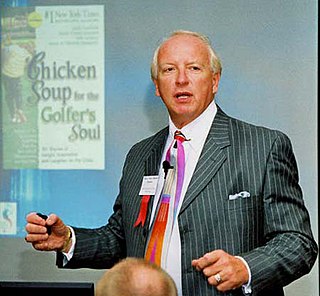A Quote by Arthur M. Schlesinger, Jr.
Problems will always torment us because all important problems are insoluble: that is why they are important. The good comes from the continuing struggle to try and solve them, not from the vain hope of their solution.
Related Quotes
Teaching and writing, really, they support and nourish each other, and they foster good thinking. Because when you show up in the classroom, you may have on the mantle of authority, but in fact, you're just a writer helping other writers think through their problems. Your experience with the problems you've tried to solve comes into play in how you try to teach them to solve their problems.
A personal relationship with God enhances life. First, it enables us to accept our limitations without being frustrated by them. It assures us that problems we can't solve are not necessarily insoluble. Second, when we need it, God offers us a sense of forgiveness, a sense of cleansing from our incompleteness. . . . Last and perhaps most important, a personal relationship with God redeems us from the fear of death. We needn't be afraid that all our good deeds will vanish when we die.
Politicians throughout history have tried to solve every problem conceivable to man, always failing to recognize that many of the problems we face result from previous so-called political solutions. Government cannot be the answer to every human ill. Continuing to view more government as the solution to problems will only make matters worse.
My hope is that design thinking becomes an innovative discipline and not just the trend of the decade. As a nation and globally, we have some of the biggest problems to solve we have ever faced. We need innovative ways to solve our problems and communicating the solutions will be paramount. Original thinking, complex problem solving, and collaboration are all important skills for our future.
It ticks me no end when people get ticked off at those of us who comment audibly and in print on events and problems. That's what we're paid for. Why clutter up your mind with a bunch of facts that might inhibit the solve-ability of us who must express an opinion? After all, all the world cries out for a solution to its problems, and we supply them right and left. Come to think of it, it's we who should be giving our deplorers and detractors the blast; because 99% of the time they don't do as we say.
The future mathematician ... should solve problems, choose the problems which are in his line, meditate upon their solution, and invent new problems. By this means, and by all other means, he should endeavor to make his first important discovery: he should discover his likes and dislikes, his taste, his own line.
Some mathematics problems look simple, and you try them for a year or so, and then you try them for a hundred years, and it turns out that they're extremely hard to solve. There's no reason why these problems shouldn't be easy, and yet they turn out to be extremely intricate. Fermat's Last Theorem is the most beautiful example of this.
There aren't enough professionals to solve the world's problems. There will never be enough doctors to solve the health problems of the world. There will never be enough teachers to solve the education problems of the world - illiteracy. There will never be enough missionaries to care and comfort and share the Good News. It has to be done by normal, ordinary people.







































